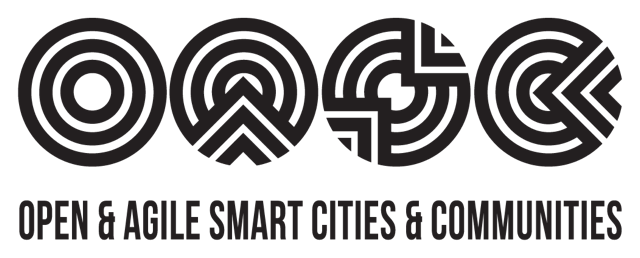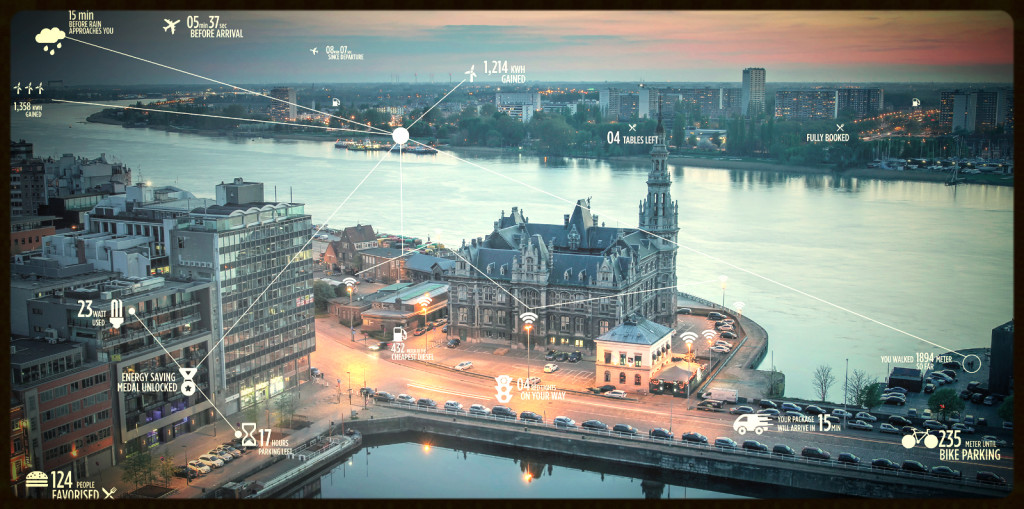Launched in January 2017, the Smart Flanders programme sets out to accelerate innovation in cities on the basis of linked open data. 13 Flemish cities, including municipalities as big as Antwerp with its half a million citizens and vast experience in procuring digital solutions as well as various smaller municipalities such as the coast town Oostende, are part of Smart Flanders, together with the Flemish Community Commission (VGC) in Brussels.
The first milestone of the programme is the recently published Open Data Charter – a set of 20 principles that supports cities in opening up city data. We spoke to Nils Walravens, senior researcher at imec and operational coordinator of Smart Flanders, about the role of the Open Data Charter and the impact of Smart Flanders on the cities’ capacity to innovate.
The Smart Flanders Open Data Charter is not the first Open Data Charter that has been published to facilitate open data re-use. What is special about this charter?
The fact that we were able to co-create the Charter with the cities makes it so that it specifically aims to support the challenges they face. We also had the luxury of not needing to start from scratch and drew inspiration from similar initiatives, for example the work of the ODI, GovLab or the City of Eindhoven, around the world to develop the Charter. Finally, we also pay attention that the Charter doesn’t stay hollow, but try to support the cities as much as possible with making the ambitions in the Charter concrete.
We do this by having the Charter approved at the municipal council level and by providing supporting documents to the cities that explain the principles in the Charter, for example a document with example clauses that cities can use when procuring solution that have an open data aspect related to them. For each principle in the Charter there is at least one example clause available, making it possible for cities to realise the Charter together with technology vendors.
imec has developed the charter together with the 13 cities: What was the biggest challenge?
An important challenge is getting 13 very diverse cities and VGC to a similar maturity level to co-write a Charter like this one. The cities are investing a lot of time and effort, but it really pays off. The most positive surprise for me has been how quickly some of these cities have picked up on the topic of open data and the enthusiasm they have shown, on top of all their other daily activities. Meeting with the cities, sharing knowledge (and failures) and building on a positive story as a group is starting to pay off for everyone involved.
What role does a standardised set of minimum requirements like the Open Data Charter play in stimulating data sharing?
I think it is critical to have a basic set of shared principles or agreements for data sharing to work. And it is important to note this does not only mean technical requirements, but also clear agreements on roles and responsibilities. Herein still lies quite a challenge for data sharing in general: agreeing on who does what and who is responsible when something does go wrong.
Smart Flanders is driven by implementation – a core principle of OASC. How does this manifest in the programme?
In Smart Flanders we indeed also want to “learn by doing” and this translates into the data pilots that we run. In the pilots, we start from an urban challenge, expressly defined by the cities and find out what role (linked) open data can play in tackling that challenge. As a result we have published real-time occupancy of off-street parking garages as linked open data, in collaboration with private companies active in the cities, as well as data on the accessibility of government buildings. These pilots have given us tremendous insight into the challenges of opening up datasets, particularly when it is not owned or under direct control of the city administration.
How have the cities dealt with such cases?
I think these cases have mostly been learning experiences. This approach of working with proof of concepts gives the cities examples, stories, to take back to their administrations and policy makers to illustrate the potential of opening data in a structural way. But they have also shown there is still a lot of work to be done, for example in relation to third-party vendors supplying data they are gathering in the public space back to cities.
The Smart Flanders programme has not ended with the publication of the Open Data Charter: What’s up next?
We continue to work on making the principles in the Charter as usable as possible, meaning more and clearer support documentation will still be developed. And of course the data pilots will continue to run. Our 2019 pilot will focus on using open data to understand how crowded it is in the city at a given time. Keep an eye on https://smart.flanders.be for updates.
About Nils Walravens
 Currently, Nils Walravens coordinates the Smart Flanders programme that supports the 13 centre cities in Flanders and the VGC in Brussels with opening up data. The goal of the programme is to tackle urban and societal problems by making more data available in a way that makes it as easy as possible to reuse. Nils has been at imec-SMIT-VUB since 2007, right after obtaining a Master’s degree in Communication Sciences from the VUB. In 2016, Nils obtained a PhD from the VUB in the same field, with a doctoral thesis on the role of mobile applications in creating public value in smart cities. Today, he is responsible for projects related to smart cities and open data at imec-SMIT-VUB.
Currently, Nils Walravens coordinates the Smart Flanders programme that supports the 13 centre cities in Flanders and the VGC in Brussels with opening up data. The goal of the programme is to tackle urban and societal problems by making more data available in a way that makes it as easy as possible to reuse. Nils has been at imec-SMIT-VUB since 2007, right after obtaining a Master’s degree in Communication Sciences from the VUB. In 2016, Nils obtained a PhD from the VUB in the same field, with a doctoral thesis on the role of mobile applications in creating public value in smart cities. Today, he is responsible for projects related to smart cities and open data at imec-SMIT-VUB.
Note to the editors
The cities participating in Smart Flanders are: Aalst, Antwerp, Bruges, Genk, Gent, Hasselt, Kortrijk, Leuven, Mechelen, Oostende, Roeselare, Sint-Niklaas, Turnhout and the Flemish Community Commission in Brussels. Smart Flanders is coordinated by imec with funding from the Flemish Government. The project ends in December 2019.

